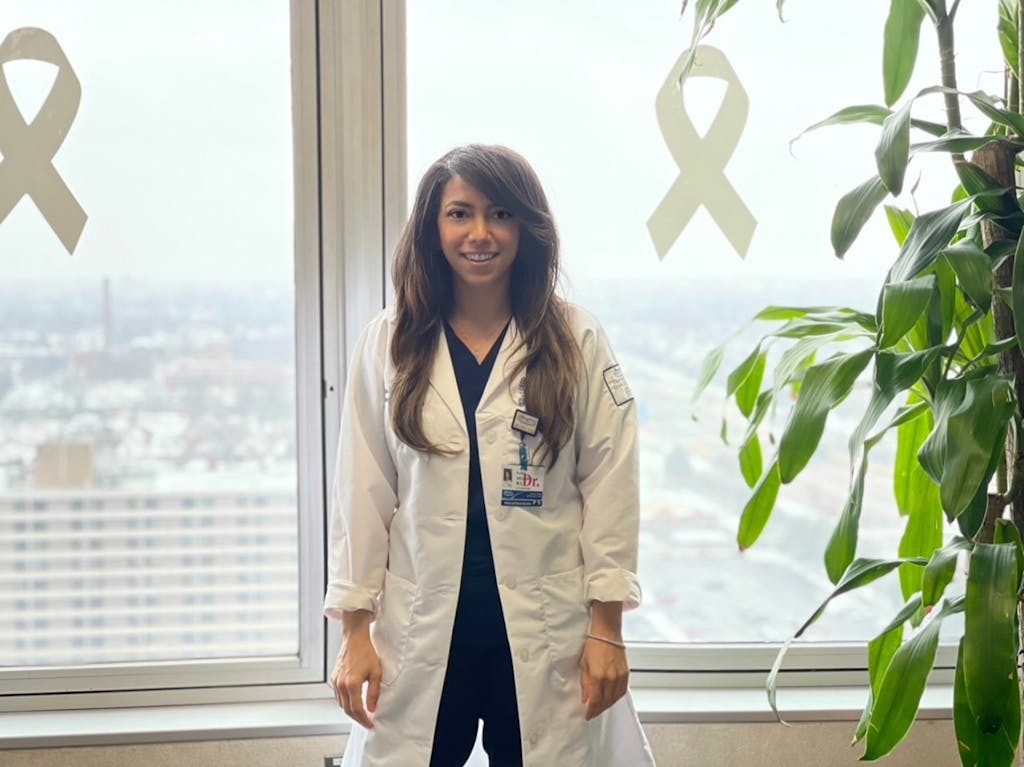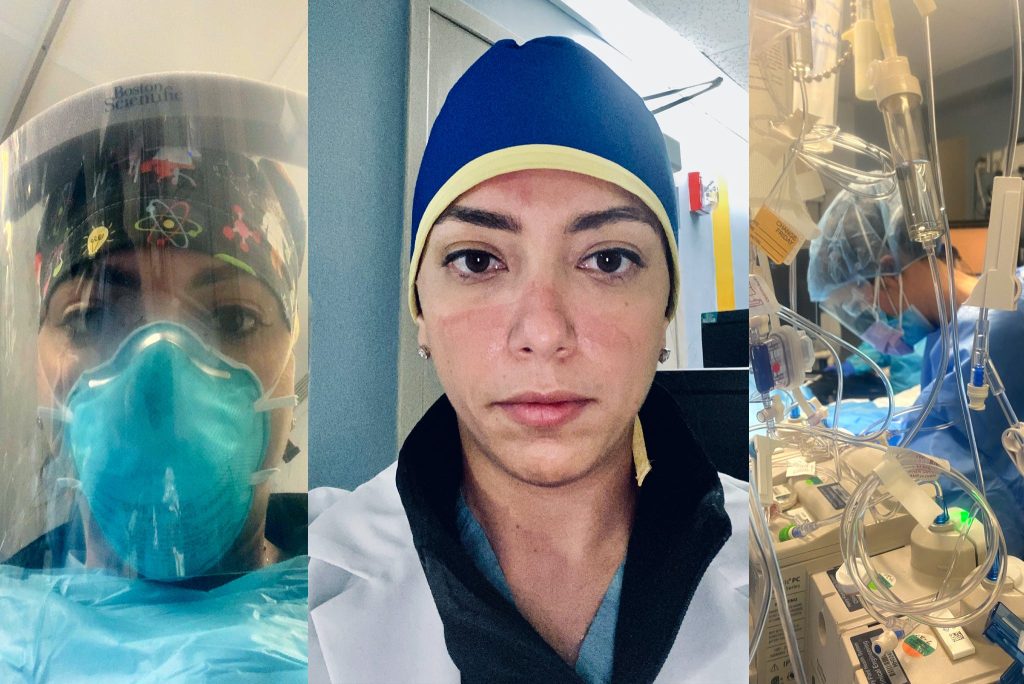Worldwide, people on the entrance strains have been working throughout the clock to include the unfold of COVID-19. With the us experiencing the worst surge of the pandemic this journey season, nurses, physicians, and completely different well being professionals can have their arms full. that is their story.
Inequitable entry to well being care has prolonged been a problem inside the us. Even earlier than the COVID-19 pandemic struck, the system was suffering from exorbitant prices, lack of insurance coverage safety, and important well being disparities based mostly on race, earnings, and ZIP codes. in contrast with completely different developed economies, the U.S. has the very best well being care expenditures, but that funding will not be mirrored in its outcomes. It has decrease life expectancy than the frequent of the OECD (the group of the world’s richest economies), as properly as to diminish ranges of well being care safety.
Now, the COVID-19 virus has strong into sharp aid the extent of the weaknesses of the well being care system inside the U.S. and the means social determinants of well being can have an effect on outcomes in whole communities. COVID-19, which has claimed the lives of better than 300,000 individuals and counting, has been the take a look at of a lifetime for the American well being care system.
to actually put this into perspective, the United Nations basis spoke to entrance-line workers throughout the nation who’re ending up their jobs amid waves of COVID-19. From a firefighter/EMT concurrently responding to fires — a byproduct of one other deep-rooted problem, the worldwide battle in opposition to local climate change — and fielding medical calls, to a nurse practitioner offering steering on well being providers to primarily the most weak segments of her group, we shall be that consists of individuals whose experiences illustrate the urgency of equitable entry to extreme quality well being care, and why we should #UniteforHealth now.

MEET SARA HEGAB
Dr. Sara Hegab is a pulmonary and demanding care specialist at Henry Ford Hospital in Detroit, the place she practices each outpatient pulmonary medicine as properly as to intensive care medicine. Michigan has recorded an growing quantity of COVID-19 deaths, and ranks amongst the various extreme 10 states inside the nation. We spoke with Hegab about what it means to improvise all by way of a medical emergency; the vicious cycle of poverty and the best means it feeds into well being care entry; and the troublesome questions round individualism and humanity that the pandemic raises.
Describe your job and day-to-day duties on the entrance strains of COVID-19.
The previous 9 months have been actually difficult with fixed change and flux, requiring pretty a little bit of pivoting. inside the spring, when Detroit was surging, many people had been pulled to workers the ICUs [intensive care units] as a outcome of we would have favored all arms on deck to allow us to develop to areas of the hospital the place medical ICU sufferers weren’t typically housed. This necessitated the closing of outpatient clinics and deferring all elective testing and procedures. collectively with planning strategies to accommodate this speedy inflow of COVID sufferers, we additionally needed to imagine exterior the discipline to develop methods and processes which will allow us to proceed delivering extreme-extreme quality look in any case our “non-COVID” outpatients, all whereas persevering with to look after hospitals stuffed with COVID sufferers. know-how turned our best buddy and we used telemedicine and digital visits to assist us do this, which allowed for frequent test-ins with our sufferers. Over the summer season and into the autumn, there was a little bit of a “COVID lull” the place we had been in a place to ramp again as a lot as full outpatient performance as quickly as extra.
What makes the group the place you are employed distinctive?
Henry Ford Hospital is in Detroit and serves a various, predominantly African American affected person inhabitants. the metropolis was hit very laborious inside the spring. all people was studying about COVID on the fly, in exact time. on the time, nobody actually knew what made some sufferers greater menace for creating extreme illness, or who would do greater or worse. whereas we didn’t know the specifics of what these demographics appeared like, it turned very clear early on that sure populations had been disproportionately affected and Black individuals had been a variety of populations.
That is most possible for a myriad of causes. there are pretty a quantity of social determinants of well being that all of us know affect well being outcomes that disproportionately have an effect on minority communities. a quantity of of these self identical components are why we see the subsequent prevalence of sure comorbidities inside the African American group; comorbidities we later realized conferred extreme menace for worse outcomes: coronary heart problems, renal illness, weight problems. We noticed whole communities and households in Detroit ravaged by COVID, typically with a quantity of generations inside households all affected on the identical time. it is actually pretty devastating.
What has treating underserved populations taught you about weaknesses in well being care?
If we’re ever going to make an affect, we should strategy well being care in a full means, which may require addressing all of the socioeconomic components that additionally affect well being, as a outcome of it’s about rather better than making sure somebody can go to the doctor. for event, to start with of the pandemic, we had people who couldn’t carry out handwashing as a outcome of the water to their properties was decrease off on account of lack of ability to pay their water invoice. Handwashing — a fundamental lifesaving intervention in relation to stopping infections, wasn’t accessible to some people. In my thoughts, there’s no purpose why anyone on this nation mustn’t have entry to scrub working water. These usually are not factors we ought to be having inside the wealthiest nation on the earth. [Michigan’s] Governor [Gretchen] Whitmer issued an authorities order in these early days restoring water providers to all occupied residences the place water had been shut off on account of nonpayment. whereas that undoubtedly saved lives, it’s not a draw again that ought to have ever existed.
I can counsel a affected person about hypertension, and making extra healthful way of life decisions, however when grocery shops usually are not simply accessible in decrease-earnings communities, then how can people be anticipated to make these healthful decisions? Not all people can drive to the subsequent metropolis or metropolis over to go grocery buying.
How can we anticipate people to take care of fantastic well being after they ought to make a selection from buying for their drugs or placing meals on the desk for his or her households? Even after we transitioned to digital care, it shortly turned apparent many inside the neighborhood did not have entry to reliable internet, a smartphone, or pc, issues that many take as a proper.
This pandemic pressured us as a rustic to imagine about what had been deemed important jobs to maintain fundamental providers working in the course of the shutdowns. lots of these important jobs are low-paying jobs and loads of of our important workers come from economically disadvantaged and minority communities that are at greater menace for creating extreme illness. The clerk on the grocery retailer, for event, needed to go to work so all people could have groceries. so as a society, we requested people to proceed working all by way of a pandemic, in roles that put them at greater menace for contracting the virus, with many already at greater menace for creating extreme illness in the event that they contracted it on account of underlying well being factors. It’s the identical part of society the place many don’t have entry to medical insurance coverage, aren’t paid a residing wage, or don’t have entry to low-cost childcare.

